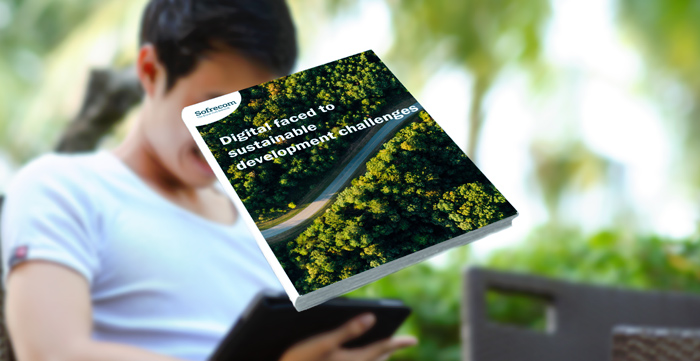
The circular economy is one of the components of sustainable development, whereby it promotes an eco-friendly production of goods and services. It builds on the notions of green economy, usage economy, performance economy and industrial ecology. In fact, the circular economy is mainly intended for companies concerned with reducing the waste of raw materials and consumption of non-renewable energy.
In this context, our client, the Group CSR department of the operator Orange, called upon on our market intelligence consultants to carry out an initial benchmark of practices and initiatives related to the circular economy. The main target is to prepare an economic impact study and to quantify the economic potential of the circular economy.
Benchmark on five key players in the circular economy
To this end, our consultants first collected information in terms of the circular economy on five key players in the telco and service industry: Vodafone, Deutsche Telekom, Swisscom, Schneider, and HP; in order to establish a preliminary overview.
Through this first step, the status of each player, their qualitative and quantitative commitments and their circular economy strategy were clearly identified. It also provided insights on their initiatives with a "market" focus, and more precisely those related to customer equipment and offers, in addition to the dynamics that had been set in motion in recent years, and the potential developments in the next 3 years in terms of business models, investor requirements, new market opportunities and potential. It also specified the economic gains/value, cost savings and ensuing environmental impacts at the level of eco-design, sustainable sourcing, recycling, extension of the life cycle, and responsible consumption.
Prioritization of the challenges, initiatives and recommendations
The analysis of the information collected then allowed our consultants to draw key lessons and create a list of recommendations for Orange's CSR department regarding its future circular economy strategy, which includes the issues and initiatives to prioritize and the commitments and KPIs to monitor in order to structure its circular economy policy and obtain real economic and environmental impacts.
An exhaustive database gathered all the circular economy initiatives of these 5 players based on different typologies: the “5R” of the circular economy (rethink, redesign, repair, recondition, recycle); the components of the circular economy according to the French Agency of Ecological Transition (ADEME) and its 7 pillars (extraction/leveraging of sustainable procurement, eco-conception; industrial and territorial ecology, economy of functionality, responsible consumption, extension of usage period, recycling); and finally the “circular bricks”: as a Service, sharing platform, circular inputs, product use extension, and resource recovery.
This database was completed through analysis grids of the economic and environmental impacts according to the lifecycle of the product and the associated circular bricks.
The objective of estimating the potential of key challenges caused by the circular economy for the Orange Group
In the teeming and dynamic context of the circular economy, that boats numerous and encouraging initiatives, this complete benchmark carried out by our expert consultants in market intelligence allowed the CSR department of the Orange Group to identify the most relevant commitments, practices and business model to be implemented in the company to ensure the efficient implementation of its strategy in terms of circular economy, while having an in-depth knowledge of the major impacts generated throughout the life cycle of a product and service. The objective was to prepare a future in-depth economic impact study on the high-stakes theme of the circular economy. Undoubtedly, we will get the chance in the coming months to continuously raise this key topic for the Orange Group through new articles on sustainable development.





